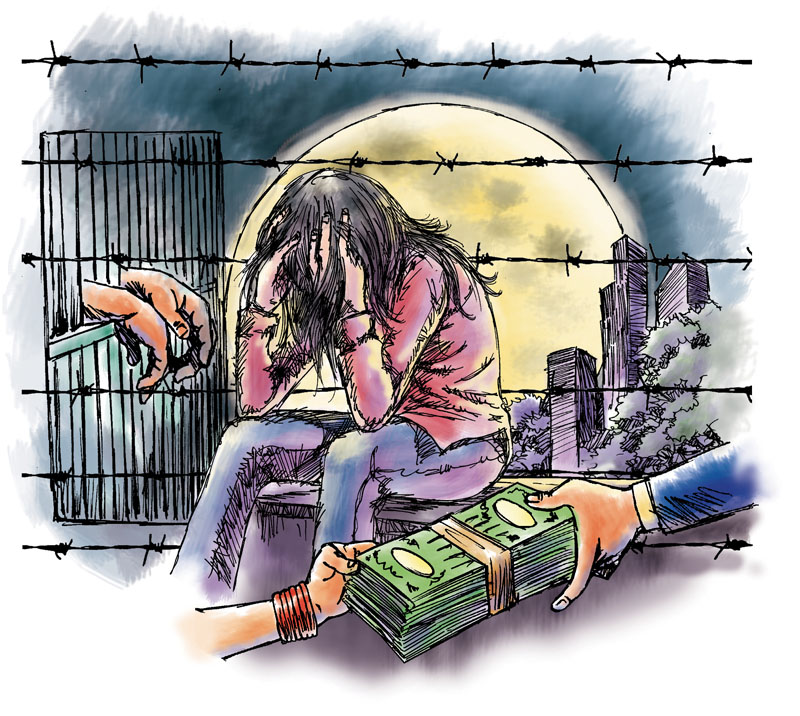Fewer child sex slaves in Mumbai brothels, but underground trade a concern: study
MUMBAI: The number of children trafficked for sex in the red light districts of Mumbai has dropped sharply, activists said, as they raised concerns over the trade shifting underground to private lodges and residences.
A study by the non-governmental International Justice Mission (IJM), Commercial Sexual Exploitation of Children in Mumbai, mapped nearly 10,000 commercial sex workers in more than 1,000 brothels, and about 200 sex workers operating from private establishments.
In brothels, it found the prevalence of minors had dropped to 5.5 percent during the course of the study from 2015 to 2016, from an estimated 40 percent in the past. It found 25 minors in private locations.
"About six to seven years ago, a customer could talk to a pimp and ask for a young girl. Now, it is not possible. They will first say no, until they establish the customer is not a police informer," said Sanjay Macwan, regional director for India at IJM.
"We strongly believe the number of children has gone down."
He credited the drop to police anti-human trafficking units and new laws that have made sexual offences against minors punishable by a maximum of life imprisonment.
Macwan said the study was not aimed at tracking a shift of young girls from public to private venues, but it did point to the need for more research.
"We need to understand how crime is going into covert spaces. Our biggest challenge was to find girls in private locations," he told the Thomson Reuters Foundation.
Some of Asia's oldest and largest red light districts are in Mumbai, a key destination for trafficked women and children. Most are lured from other states and neighbouring countries, often with the promise of good jobs in a home or shop.
Instead, many are forced into sex work or manual labour.
The sex trade has shifted over the past five to 10 years from hot spots such as Kamathipura, Mumbai's oldest red light district, to private lodges and residential areas.
The IJM study noted that technology such as WhatsApp and the Mumbai version of the classified ads website Backpage.com have facilitated the underground sex trade.
Researchers interviewed 15 survivors, most of whom had been forced into the trade when they were aged 16 to 25, and had no idea where they were being taken when they were brought to Mumbai.
Most did not speak Hindi or Marathi - the main spoken languages in the city - and were abused physically and sexually to coerce them into the trade, the IJM study found.






